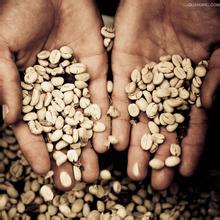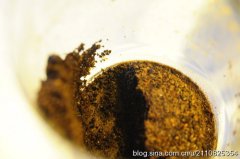The history and culture of coffee and its advantages and disadvantages to the human body
Legend has it that in the 6th century AD, a shepherd in Ethiopia found his sheep jumping around all of a sudden. He observed carefully that the sheep only had this excited reaction after eating a red fruit. He tried to share this fruit with others, and all of them felt refreshed and refreshed after eating it. Therefore, this fruit was used as a refreshing medicine.
the origin of coffee
The earliest written record of coffee was written by the 10th century arabic doctor raj, but coffee cultivation dates back to 575 ad, and the best coffee variety arabica originated in ethiopia. In the fifteenth century southern Arabia in Yemen began intensive planting of seedlings from Ethiopia.
Coffee Turbulence
Coffee's popularity, initially associated with religion, later became a threat to religious discipline. Coffee became a subversive drink, bringing people together to exchange wisdom and inspire political debate and resistance. In 1656, the Ottoman Emperor ordered coffee shops to close for political reasons, prohibiting people from drinking coffee. In 1674, European women complained in letters against coffee that whenever there was an emergency at home, men were always away because they were all in coffee shops. French wine merchants are trying to bring coffee down, because coffee is wine's number one enemy.
Coffee is medicine.
In 1657, an English newspaper published that coffee has many effects, effective for stomach ulcers, can strengthen the heart, promote digestion, cheer up, relax the mood, cure eye diseases, colds, coughs, lung diseases, headaches, edema, gout, scurvy, adenopathy, etc., and other diseases. Coffee is sometimes described as an elixir and sometimes as a poison because it can cause some people to suffer from symptoms such as insomnia, anger, palpitations, fever, weight loss, and stomach upset.
Coffee's origin
Colombia produces Colombia coffee; Brazil produces Brazilian coffee; Jamaica produces Blue Mountain coffee; Indonesia produces Java coffee; Tanzania produces Gilligan Mazaro coffee; Yemen produces Mocha coffee; United States produces Hawaiian coffee; Guatemala produces Guatemalan coffee; Ethiopia produces Mocha coffee;
coffee cultivation
One of the characteristics of the coffee tree is that its fruit can bear several times a year, and another is that flowers and fruit coexist at different stages of maturity. If the seeds are too ripe, the beans will rot, if not ripe, the beans will not ripen themselves. A tree usually yields an average of about 2 pounds a year.
The ideal environment for growing coffee trees is between 65 and 75 degrees Fahrenheit, the right altitude and annual rainfall between 40 and 120 inches. The best soil is a mixture of decomposed volcanic soil, humus soil and permeable soil.
Coffee Guide
Brazil accounts for one-third of global consumption of all grades and types of coffee, which is the world's number one coffee producer. In addition to premium coffee, coffee generally wins by volume. Colombia is the world's second largest coffee producer, with the world's best coffee beans, the best flavor, and the most popular is mantinine. Angola is the world's fourth largest coffee exporter, producing only a small amount of Arabica coffee, which is the best of all beans. Costa Rican coffee beans are one of the finest coffees in the world, mild, rich, sour and intensely aromatic. Ethiopia is the ancestor of Arabica coffee beans, high acidity, wine flavor, rich, mild, strong flavor, pleasant aroma. Jamaica Alpine Coffee is the best coffee in the West Indies. Blue Mountain Coffee is perfect in quality, character, aroma and sweetness. Yamen produces mocha coffee, which has been recognized as good coffee since people began drinking coffee, with distinctive acidity and strong coffee itself. Venezuelan coffee is one of the best in the world, mild and delicate, with an attractive aroma of acid.
Benefits:
1. Coffee contains certain nutrients. Nicotinic acid in coffee contains vitamin B, which is higher in roasted beans. And there are free fatty acids, caffeine, tannic acid and so on.
2. Coffee is good for the skin. Coffee can promote metabolic function, activate digestive organs, constipation has a great effect. Bathing with coffee powder is a kind of thermotherapy, which has the effect of losing weight.
3. Coffee has a hangover effect. Drinking coffee after drinking will quickly oxidize acetaldehyde converted from alcohol and decompose it into water and carbon dioxide and expel it from the body.
4. Coffee can eliminate fatigue. To eliminate fatigue, it is necessary to supplement nutrition, rest and sleep, and promote metabolic functions, and coffee has these functions.
5. Three cups of coffee a day can prevent gallstones. Caffeinated coffee stimulates contraction of the gallbladder and reduces cholesterol in bile, which can easily form gallstones. Harvard University researchers found that men who drink two to three cups of coffee a day have a 40% lower chance of developing gallstones.
6. Drinking coffee regularly can prevent radiation damage. Radiation damage, especially the radiation of electrical appliances, has become a more prominent pollution. Indian atomic researchers reached this conclusion in mouse experiments and said it could be applied to humans.
7. Coffee's health benefits. Coffee has the functions of antioxidation and heart protection, strengthening muscles and bones, benefiting waist and knees, stimulating appetite, eliminating fat, eliminating accumulation, removing dampness from orifices, activating blood circulation and removing blood stasis, stopping wind and stopping spasm, etc.
8. The emotional impact of coffee. Experiments have shown that the average person absorbs 300 mg (about 3 cups of brewed coffee) of caffeine a day, which will have a good effect on a person's alertness and mood.
Disadvantages:
1. When you're nervous, you mess up.
Caffeine improves alertness, agility, memory and concentration. But drinking more coffee than you're used to can produce stimulants similar to those consumed in the same dose, which can cause nervousness. For people prone to anxiety disorders, caffeine exacerbates sweaty palms, palpitations and tinnitus.
2. Increased blood pressure
Caffeine is often combined with other simple painkillers because of its analgesic effect, but if you take it in large quantities for a long time, if you already have high blood pressure, using large amounts of caffeine will only make your situation worse. Because caffeine alone can raise blood pressure, when combined with emotional stress, it can have a dangerous multiplier effect, so people at risk for high blood pressure should avoid caffeinated beverages especially when they are under high pressure at work. Some regular coffee drinkers think they are immune to caffeine's effects, but that's not the case, with one study showing blood pressure can rise for up to 12 hours after drinking a cup of coffee.
3. induced osteoporosis
Caffeine itself has a good diuretic effect, if long-term and large amounts of coffee, easy to cause bone loss, bone preservation will have an adverse impact, for women, may increase the threat of osteoporosis. However, the premise is that the usual food is already lacking in adequate calcium intake, or people who do not often move, plus post-menopausal women, calcium loss caused by lack of estrogen, these conditions plus a lot of caffeine, may pose a threat to bones. If you can enjoy it in reasonable amounts, you can still do it without choking.
In addition, the following six people should not drink coffee:
Suffering from hypertension, coronary heart disease, arteriosclerosis and other diseases-long-term or large amounts of coffee drinking, can cause cardiovascular disease.
Older women-Coffee reduces calcium and causes osteoporosis. After menopause, women need ten times more calcium per day.
Stomach sufferers-drinking too much coffee can cause stomach problems to worsen.
Pregnant women-drinking too much coffee can lead to fetal abnormalities or miscarriage.
Vitamin B1 deficiency-Vitamin B1 can maintain the balance and stability of the nervous system, and coffee has a destructive effect on it.
Cancer Patients-Drinking too much coffee poses a cancer risk to normal people.

Important Notice :
前街咖啡 FrontStreet Coffee has moved to new addredd:
FrontStreet Coffee Address: 315,Donghua East Road,GuangZhou
Tel:020 38364473
- Prev

When siphoning coffee, the higher the hill, the better?
When cooking siphon. What people pay most attention to is. After cooking. Is it an airport? Or D Cup? In the end is. The higher the better? Is it better to be mediocre? Generally speaking. The coffee powder will be stirred when cooking siphon. The first stirring is to soak the coffee powder and expand the air in the coffee powder after the coffee powder is soaked, so a lot of it is produced.
- Next

If you don't get drunk, everyone gets drunk, orange, slightly tipsy coffee.
Orange slightly tipsy coffee is a kind of fancy coffee with petty bourgeoisie flavor, because it has a strong sense of operation, and it is very suitable for making such a fruity coffee for each other and yourself in the world of two people. of course, it takes a lot of skill to grasp the speed of drip filtration and the time to burn citrus Manyi wine, the former needs to have a certain degree of awareness of individual coffee, because drip filter coffee
Related
- Beginners will see the "Coffee pull flower" guide!
- What is the difference between ice blog purified milk and ordinary milk coffee?
- Why is the Philippines the largest producer of crops in Liberia?
- For coffee extraction, should the fine powder be retained?
- How does extracted espresso fill pressed powder? How much strength does it take to press the powder?
- How to make jasmine cold extract coffee? Is the jasmine + latte good?
- Will this little toy really make the coffee taste better? How does Lily Drip affect coffee extraction?
- Will the action of slapping the filter cup also affect coffee extraction?
- What's the difference between powder-to-water ratio and powder-to-liquid ratio?
- What is the Ethiopian local species? What does it have to do with Heirloom native species?

